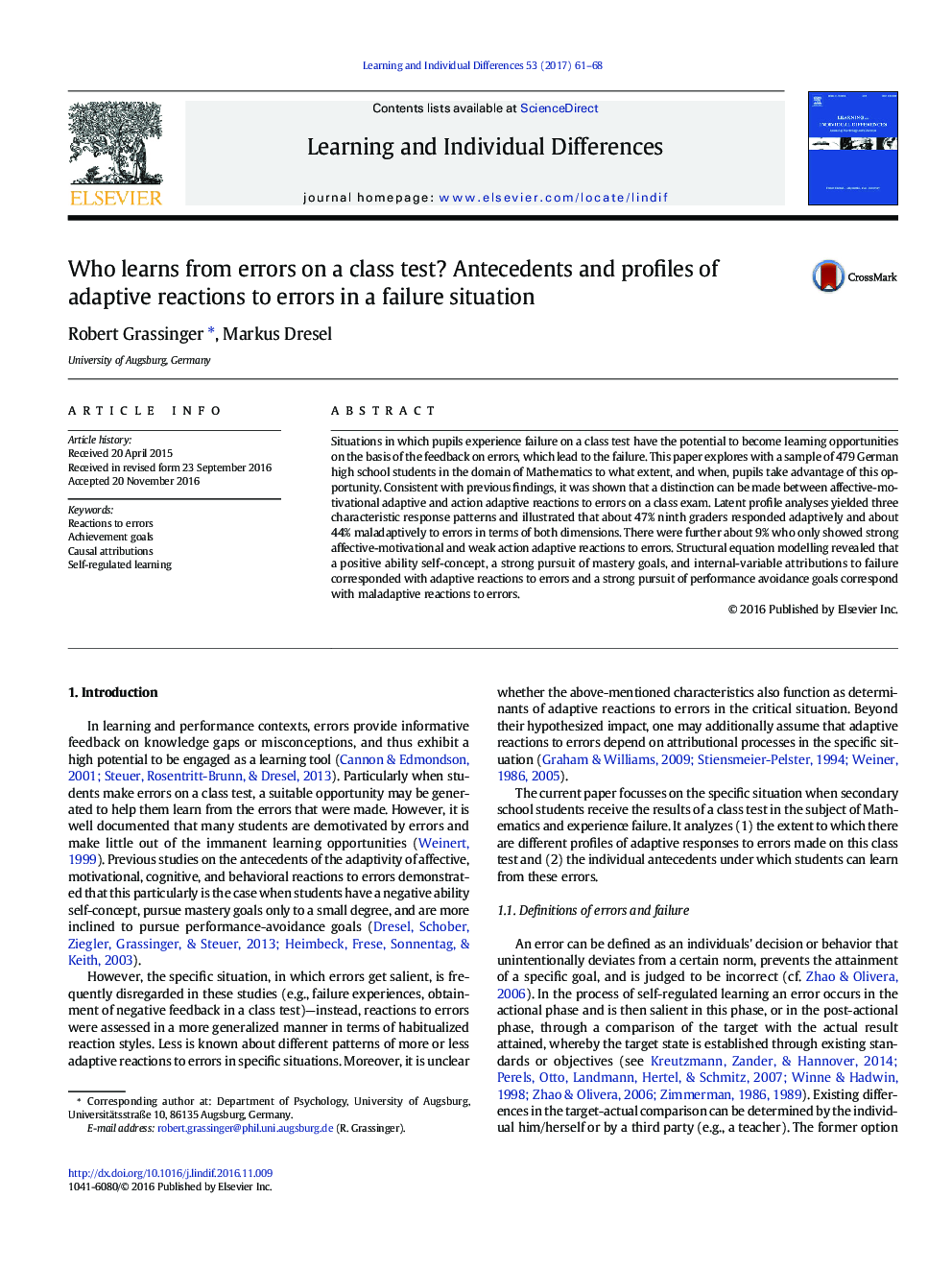| Article ID | Journal | Published Year | Pages | File Type |
|---|---|---|---|---|
| 4940180 | Learning and Individual Differences | 2017 | 8 Pages |
â¢Adaptive error reactions comprise affective-motivational and action adaptive reactions.â¢Three latent profiles of (mal-)adaptive error reactions on a class exam were identified.â¢Self-related motivation was mainly related to affective-motivational reactions.â¢Internal-variable failure attributions were related to adaptive error-reactions.
Situations in which pupils experience failure on a class test have the potential to become learning opportunities on the basis of the feedback on errors, which lead to the failure. This paper explores with a sample of 479 German high school students in the domain of Mathematics to what extent, and when, pupils take advantage of this opportunity. Consistent with previous findings, it was shown that a distinction can be made between affective-motivational adaptive and action adaptive reactions to errors on a class exam. Latent profile analyses yielded three characteristic response patterns and illustrated that about 47% ninth graders responded adaptively and about 44% maladaptively to errors in terms of both dimensions. There were further about 9% who only showed strong affective-motivational and weak action adaptive reactions to errors. Structural equation modelling revealed that a positive ability self-concept, a strong pursuit of mastery goals, and internal-variable attributions to failure corresponded with adaptive reactions to errors and a strong pursuit of performance avoidance goals correspond with maladaptive reactions to errors.
